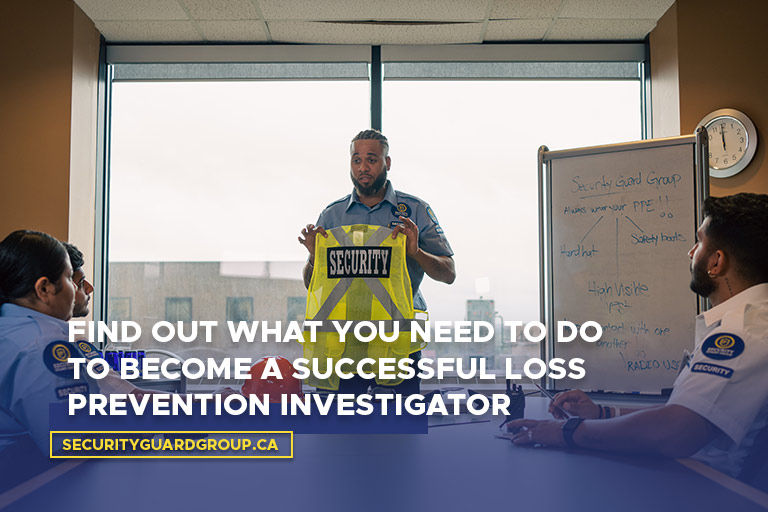The world of retail and business is dynamic and challenging, with various factors impacting success. One critical aspect that can make or break a business is its ability to effectively manage and prevent loss. This is where the role of a loss prevention investigator becomes pivotal. These professionals are at the forefront of combating theft, fraud, and other risks that can lead to significant financial setbacks for companies. This article explores what it means to be a loss prevention investigator, the skills required, and the path to entering this challenging and rewarding field.
What Is a Loss Prevention Investigator?

A loss prevention investigator plays a crucial role in safeguarding a company's assets, reputation, and bottom line. These professionals are tasked with identifying, investigating, and mitigating various forms of theft and fraud that can negatively impact a business. Their work is not just about catching shoplifters; it extends to a comprehensive approach to prevent loss through strategies and interventions that tackle internal and external threats.
Their responsibilities often include conducting surveillance, performing audits, and developing loss prevention strategies. Additionally, they must stay abreast of legal and ethical standards to ensure compliance in their operations. These individuals are skilled in identifying business risks and devising strategic measures to counter them. The work of a loss prevention investigator is critical in maintaining the integrity and profitability of a business.
Steps to Becoming a Loss Prevention Investigator

Embarking on a career as a loss prevention investigator requires a mix of education, experience, skills, and continuous learning. In this section, we delve deeper into each step necessary to become a successful loss prevention investigator.
Educational Background
A solid educational foundation is crucial for a loss prevention investigator. While a high school diploma is a basic requirement, a college degree, preferably in criminal justice, business administration, or a related field, can be highly advantageous. Such an education provides a comprehensive understanding of the legal system, ethical considerations, business principles, and security management. For those unable to pursue a full degree, courses in criminal law, criminology, or fraud investigation can also be beneficial. This educational background equips aspiring investigators with the theoretical knowledge needed to understand the complexities of loss prevention and security in a business context.
Gain Relevant Experience
Practical experience is invaluable in this field. Starting a career in retail, security, or law enforcement can provide insights into the practical aspects of loss prevention. Experience in retail helps aspiring investigators understand business operations and customer interactions where losses can occur. Working in security or law enforcement develops skills in handling confrontational situations, understanding legal implications, and conducting investigations. Volunteering for loss prevention tasks or shadowing experienced investigators can also provide a glimpse into the daily responsibilities and challenges of the role.
Develop Necessary Skills
Certain skills are crucial for a loss prevention investigator. These include:
Analytical Skills
This involves scrutinizing sales data, inventory reports, and surveillance footage to identify patterns indicative of theft or fraud. You need to be able to interpret complex data sets and translate them into actionable insights.
Attention to Detail
Whether it’s spotting inconsistencies in inventory records or observing subtle behavioral cues in customers and employees, a keen eye for detail can make a significant difference.
Communication Skills
Investigators need to articulate findings clearly to management, collaborate with team members, and, when necessary, interact with law enforcement. The ability to convey complex information in a concise and understandable manner is vital.
Technological Proficiency
With the increasing use of technology in loss prevention, from advanced surveillance systems to data analysis software, proficiency in these tools is indispensable.
Problem-Solving Skills
This involves not only identifying loss occurrences but also devising and implementing strategies to prevent future incidents. Creative and critical thinking is required to develop effective loss prevention measures that align with business operations.
Integrity and Ethics
Investigators must navigate the delicate balance of enforcing loss prevention while respecting privacy laws and ethical boundaries. This includes adhering to legal protocols during investigations and respecting the rights of all parties involved.
Obtain Certification
Certifications like the Certified Loss Prevention Professional (CLPP) or the Professional Certified Investigator (PCI) indicate a specialized knowledge in loss prevention strategies and investigative techniques. These certifications often require a combination of education, experience, and passing a comprehensive exam. They also encourage ongoing education and adherence to a code of ethics, which are essential in this evolving field.
Networking and Industry Knowledge
Networking can be done through professional associations, conferences, and online forums. These connections can lead to mentorship opportunities, job openings, and valuable industry insights. Keeping abreast of the latest trends, technologies, and legal changes in loss prevention is equally important, as this field is constantly evolving with new challenges.
Continuous Learning
This could involve additional training sessions, webinars, or workshops. Staying updated with the latest in security technology, theft-prevention tactics, and legal regulations is crucial. Continuous learning also involves being adaptable and open to new methods and technologies that emerge in the field.
Application and Interview Process
Be prepared to discuss real-world scenarios and your approach to various loss prevention situations during interviews. Showcasing your problem-solving skills and ability to handle pressure can make a significant difference.
By following these steps, aspiring loss prevention investigators can build a strong foundation for a rewarding career in this field. With the right mix of education, experience, and skills, along with a commitment to continuous learning and ethical practice, one can effectively contribute to the security and profitability of businesses.
Get Loss Prevention Investigator Training at Security Guard Group
Embarking on a career as a loss prevention investigator is both challenging and rewarding, offering the chance to make a significant impact on the success and security of businesses.
If you are ready to take the next step in your career, contact Security Guard Group at (226) 667.5048. As one of the leading security companies in Toronto, we can guide you on your journey to becoming a successful loss prevention investigator and help you protect businesses from various risks and losses.
_PNG.png)
Commentaires